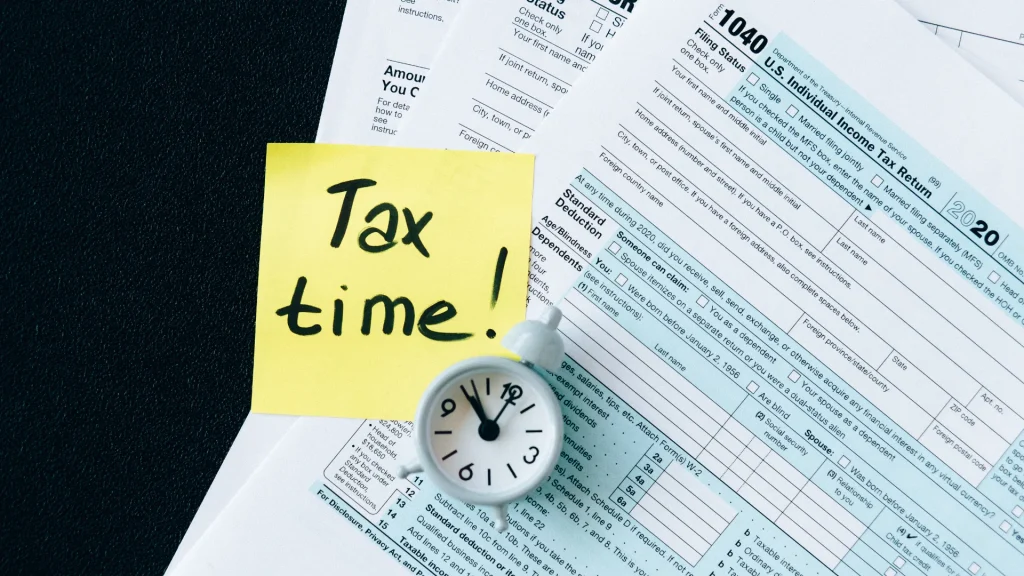All taxpayers must meet the deadlines established by the authorities to remain compliant with tax regulations unless an extension is granted. Failure to meet tax deadlines will result in penalties, interest, and legal issues.
Here are the important 2025 tax deadlines that you should be aware of to maintain compliance.
Key 2025 Tax Deadlines
January 2025
The first important tax deadline occurs in January. If you are a freelancer, business owner, or other who pays estimated taxes (taxes on income that isn’t subject to withholding, such as earnings from self-employment, interest, dividends, rents, etc.), the deadline for submitting your fourth estimated quarterly tax payment for 2025 is January 16. Use the IRS form 1040-ES to calculate your estimated tax payment accurately.
February 2025
Employers must distribute W-2 forms to employees by February 1st, 2025, for wage and tax reporting purposes. It is also the deadline for 1099 form issuers to send to independent contractors so that they can report their income to the IRS on time. Issuers must keep accurate records to ensure timely form distribution, allowing recipients to submit on time. Recipients should also carefully review forms and report any discrepancies immediately to avoid delays and penalties.
March 2025
March 15 is the deadline for businesses structured as S-corporations and Partnerships to file their 2024 tax returns. S-Corporations and Partnerships use Forms 1120-S and 1065, respectively.
For those who are unable to submit on time, there is the possibility of an extension. This extension can be requested by filling out form 7004. If granted, the extension will be for six months. It’s important to note that the extension is only for filing taxes. It does not include an extension for paying taxes.
April 2025 Tax Deadline

Due to several deadlines, April 15 is typically a big day during tax season.
April 15 is the deadline for individual federal income tax filing and the first estimated tax payment for 2025. Form 1040 is used to file your individual taxes before the deadline. If you need an extension, you can request it by submitting the Form 4868.
April 15 is also the deadline for contributing to your IRA and HSA for the 2024 tax year and qualifying for deductions. Plan ahead and gather all necessary documents, such as forms and other supporting documents, to avoid late filing and errors.
Double-check all the information (names, social security numbers, calculations) before submission to avoid delays and penalties. If you qualify, consider filing your taxes electronically to minimize errors and expedite the process.
June 2025
The next tax deadline for the second estimated quarterly tax payment for 2025 is June 17. Self-employed individuals, freelancers, and other earnings that are not subject to withholding must be calculated and paid using Form 1040-ES.
September 2025
The third estimated quarterly payment for 2025 will occur in September. Again, earnings not subject to withholding must be calculated and paid by the deadline using Form 1040-ES.
If you have been granted an extension for your business (S-Corporation and Partnership), September is the extended deadline for filing returns. File Form 1120-S for S-Corporations and Form 1065 for Partnerships. Moreover, ensure shareholders (for corporations) and partners (for partnerships) have received their Schedule K-1 Forms.
October 2025
If you are an individual or a C-corporation filing extended 2024 tax returns, October 15 is the deadline. Note that this will be the absolute deadline to file your returns. Failing to comply will result in late filing penalties.
How to Prepare for 2025 Tax Deadlines

Organize Your Documents Early
2025 Tax deadlines are spread out throughout the year, so effective planning is essential. Sorting through documents and filing various forms can take time and be confusing (due to different deadlines). As a result, it is critical to begin preparing and organizing your documents early on. This allows you to take the time to ensure that your documents are complete and accurate in order to avoid a variety of consequences ranging from delays to hefty fines.
Work with a Financial Advisor
Taxes are inherently complex. Compliance with tax regulations requires timely filing and payment of taxes and accurate information and calculations. Navigating all of these complexities alone can be difficult.
Consider working with a financial advisor to help you plan your taxes, calculate deductions and credits, and file them correctly.
Understand Tax Extensions
Understanding tax extensions is critical for avoiding penalties and remaining in full compliance with regulations. It is important to remember that tax extensions provide additional time for you to file your tax returns, not pay your taxes. When filing for an extension, be diligent and pay attention to the deadline.
Common Mistakes to Avoid
Besides filing late, other mistakes can land you significant tax issues, such as penalties, and missed opportunities, like savings through deductions. Here are some common mistakes to avoid:
Missing quarterly estimated tax payments
Estimated payments are important tax deadlines for self-employed individuals, freelancers, and business owners who don’t have taxes withheld from their income. Besides remembering the deadlines, use the forms provided by the IRS to calculate the amount you need to pay accurately.
Forgetting to report all sources of income
Failing to report all sources of income can trigger IRS scrutiny, which can include an audit, potential penalties, and legal problems. Always report all sources of income, including side jobs, freelance work, and dividends from your investments. Take note of all your income sources to ensure you do not miss any when filing your tax returns.
Overlooking tax credits and deductions
Taxpayers can save money and lower tax liability by taking advantage of tax credits and deductions. However, there is eligibility for these tax benefits. Identify these opportunities by researching which tax credits and deductions you qualify for and calculate them properly. Examples are Child Tax Credits or deductions for student loan interest and medical expenses.
Waiting until the last minute to file
Preparing for tax filing takes time and effort. Waiting until the last minute to organize documents and file your return increases the chance of making costly mistakes and stress. Start early and ensure you have all the documents and supporting files for your tax filing.

Butson Financial Advisors Expertise in Tax Planning
We specialize in creating personalized tax strategies to ensure you avoid tax issues, save money from tax savings opportunities, and navigate the complexities of tax regulations with confidence and no stress! Our financial advisors provide a complete range of tax planning services to individuals, families, and businesses.
Contact us today and let our financial advisors help guide you through the world of taxes so that you can make an informed decision and achieve your financial aspirations.

